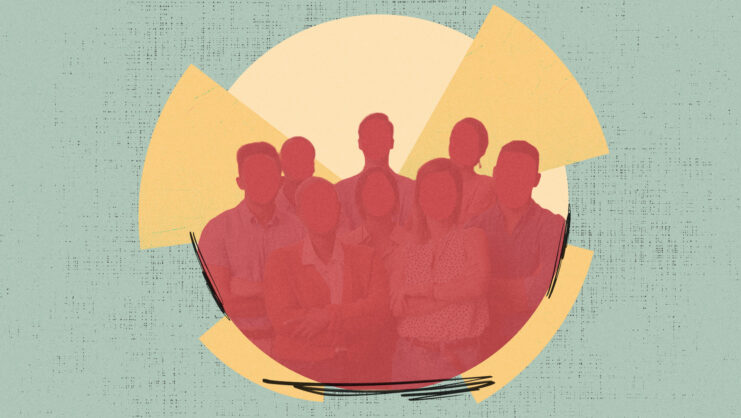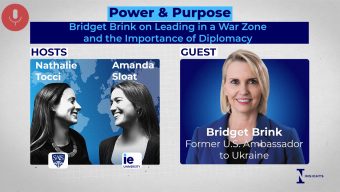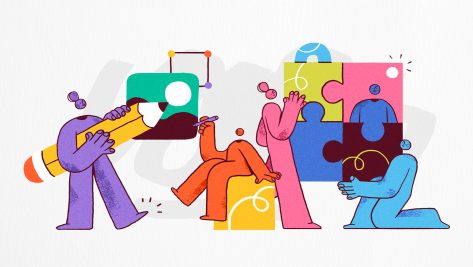These days, the connection between individual growth and societal development has never been stronger. Leaders and professionals are increasingly recognizing that personal development isn’t just about career advancement but about fostering and contributing to a more compassionate, conscious, and integrated world. This means we must go beyond the traditional metrics of success that have been used in the world of personal and professional development for so long – and focus also on the impact made within community and organization.
Such a journey of comprehensive development is rarely straightforward. In fact, it is often messy, uncertain, and convoluted. To navigate this complex endeavor, we propose a framework that addresses four essential aspects of personal and professional growth, focused on awareness (Wake Up), maturity (Grow Up), healing (Clean Up), and engagement (Show Up). This approach is significantly influenced by Ken Wilber’s integral theory, which combines insights from various disciplines including psychology, spirituality, and sociology to offer a comprehensive view of human potential. Thanks to this foundation, our framework provides a roadmap for those seeking to not only enhance their own personal evolution but that of the world at large.
Wake Up: “Knowing yourself is the beginning of all wisdom.” —Aristotle
At its core, “waking up” refers to developing a profound understanding of oneself and place in the world, gaining awareness and becoming conscious of an inner life. It’s a journey of radical self-inquiry and introspection that challenges professionals to examine how their beliefs and motivations connect with the wider system we all belong to, to tune into their inner voice and the world around them.
The process of waking up requires that individuals shift their perspective from viewing themselves as isolated entities to go beyond the “self-as-solo” understanding. This expanded awareness can be transformative and help leaders learn to make decisions that consider not just personal gain but make a positive impact on the larger group.
As leaders wake up to their interconnectedness, they become better equipped to navigate challenges, foster empathy, and drive meaningful change.
Practices to help wake up include:
- Mindfulness Practices: Meditation exercises can help individuals become more present.
- Reflective Journaling: Developing a dialogue with oneself enhances the ability to pay attention to the inner voice.
- Immersive Retreats: Spending time in nature, for example, can foster a sense of intra- and interconnectedness.
- Philosophical and Spiritual Exploration: Reading and discussing philosophical and spiritual texts can expand awareness.
Grow Up: “You have power over your mind—not outside events. Realize this and you will find strength.” —Marcus Aurelius
The concept of “growing up” in a professional context extends far beyond accumulating years of experience. It is the same as gaining maturity in one’s personal life and involves developing the emotional, psychological, and moral aspects of oneself. This is a multifaceted growth that, eventually, enables leaders to make better decisions, work through interpersonal dynamics, and maintain balance and calm in difficult situations.
By cultivating a more mature, integrated self, professionals can begin to harmonize various aspects of their personality and values, which in turn can translate into more developed emotional intelligence and ethical reasoning. Leaders who have “grown up” and have come to a more stable and integrated self are commonly better equipped to build trust and inspire others within the organization.
Practices to help grow up include:
- Therapy Coaching: Therapists and coaches can help build emotional resilience and manage complex emotions.
- Continuous Learning: Staying open to new experiences and ideas can help facilitate personal growth.
- Healthy Relationships: Nurturing healthy relationships can support emotional and psychological maturity.
Clean Up: “It’s not what happens to you but how you react to it that matters.” —Epictetus
We cannot move too far forward without addressing our past. The process of “cleaning up” is a critical, albeit often overlooked, aspect of leadership development. It involves confronting and resolving past experiences that may be continuing to create behaviors and patterns in our current professional life that are, in fact, hindering our growth and success within a team or organization.
This internal work requires the leader to address past traumas, resolve ongoing or dormant conflicts, and also identify and work to change unhealthy behaviors and unconscious biases. This process is often uncomfortable, but it is important if the leader is to foster inclusive environments, make ethical decisions, and guide their teams with authenticity.
Practices to help clean up include:
- Introspection and Self-Inquiry: Taking regular time out for deep reflection can help identify and address emotional wounds and psychological barriers.
- Shadow Work: Coaches and therapists can help explore the hidden or repressed parts of one’s personality and reintegrate them into the multidimensional self.
- Somatic Practices: Body-based practices like yoga, dance, martial arts, and breathing promote emotional healing and self-regulation.
Show Up: “No man ever steps in the same river twice, for it’s not the same river and he’s not the same man.” —Heraclitus
“Showing up” builds on the principles of waking up, growing up, and cleaning up and represents the culmination of the leader’s journey to a point of action. It’s where insight becomes day-to-day action and decision making. Leaders who are truly present in this way often seek opportunities in which they can use their influence and knowledge for the greater good.
Practices to help show up include:
- Volunteering and Mentoring: Engaging in community service and mentoring others to contribute to societal well-being.
- Creative Projects: Pursuing creative endeavors that align with personal values and purpose.
- Leadership Roles: Assuming leadership roles in organizations or communities to actively participate and make a difference.
Modern leadership development faces significant challenges due to the complexity of today’s world, including the climate crisis, technological disruption, geopolitical tensions, and social inequality. Existing development approaches are often insufficient in depth and scope, necessitating a more comprehensive and holistic approach. This integral and developmental encourages leaders to acknowledge various perspectives, fostering ethical responsibility, accept ambiguity, and adapt to the barrage of changes organizations now encounter. Through the acceptance of holistic development across physical, cognitive, emotional, and spiritual dimensions, leaders can learn to adapt. It emphasizes vertical development and the progression through successive stages of personal and professional growth.
Modern life is uncertain and complex and we must all find ways to foster a more integrated and compassionate society. Leaders must start with themselves, by waking up, growing up, cleaning up, and showing up. Only then can they effectively navigate themselves and their organizations through challenges. This approach, of course, entails continuous personal and societal evolution, and it leads to a more fulfilling and impactful life.
© IE Insights.











